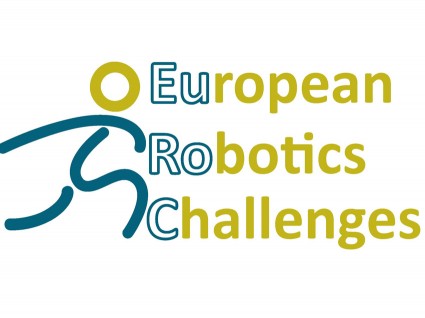
Robohub.org
EuRoC Info Day is just around the corner
 The European Robotics Challenge (EuRoC) Info Day will take place on May 5, 2014 at the Fraunhofer IPA auditorium in Stuttgart, Germany. Interested participants will have the opportunity to present their challenger teams, use cases, technologies or their expertise as system-integrators in a dedicated brokerage session. They will also learn more about EuRoC’s individual Challenges and hosting platforms.
The European Robotics Challenge (EuRoC) Info Day will take place on May 5, 2014 at the Fraunhofer IPA auditorium in Stuttgart, Germany. Interested participants will have the opportunity to present their challenger teams, use cases, technologies or their expertise as system-integrators in a dedicated brokerage session. They will also learn more about EuRoC’s individual Challenges and hosting platforms.
Central to this event will be the presentation of the three challenges and their platforms by the EuRoC consortium. Special emphasis will be given to the challenger teams and the simulation stage of the three challenges. Nonetheless, the roles and participation of End Users, Technology Developers and System Integrators will be vital to the event – see the agenda for details.
Follow us @EuRoCproject, or like us on Facebook https://www.facebook.com/eurocproject to stay on top of all the latest EuRoC news.
About the EuRoC Challenges
The European Robotics Challenge (EuRoC) aims to spur the development of new applicable innovations in European manufacturing. It consists of three industry-relevant Challenges within the scenarios of 1) Reconfigurable Interactive Manufacturing Cell, 2) Shop Floor Logistics and Manipulation and 3) Plant Servicing and Inspection.
The EuRoC consortium consists of 9 beneficiaries: 5 academic/research, 3 companies and 1 SME. The five academic beneficiaries (CREATE, CNRS, DLR, ETHZ, IPA) have been selected so all of EuRoC’s challenges are covered at a very high scientific level, while the three industrial beneficiaries (AIR, ASC, KUKA) cover the most promising technologies for potential end‐users. In addition, a beneficiary with a strong expertise on challenges (INNO) has been included in the consortium to ensure the professional design and execution of the challenges.
Each Challenge is launched via an open call and is structured in 3 stages of increasing complexity, from simulation contest to real experiments at end user sites. Over the next 4 years, EuRoC will grant a cumulative sum of € 7 million, provide access to the leading hardware and robotics platforms in Europe and offer excellent research, networking and business opportunities to participants.
There are two options for participation:
1) Option 1 is dedicated to Challengers. These are research organizations, companies or even private individuals, which fulfil the eligibility criteria, and are willing to tackle the EuRoC challenges.
2) Option 2 is dedicated to:
a. End Users: Manufacturing companies, either SMEs or large Enterprises, looking for robotic solutions for their production environment.
b. Technology Developers: Companies or research organizations developing innovative technologies (e.g. new vision system, cloud-based control software, etc.) and looking for an application of their technology in the industrial robotics domain.
c. System Integrators: Companies that specialize in bringing together robotic components/subsystems, and developing and commissioning whole robotic systems.
The fundamental difference between the two options is the fact that challengers have to undergo the simulation contest to qualify for advancement to stage II, whereas end users, technology developers and system integrators need only submit descriptions of their respective use case/ technology/ expertise as system integrator.
Challengers have the advantage that they are “the architects of their own fortune” because their advancement to the next stage depends on their performance in the simulation contest, whereas end users, technology developers and system integrators have to rely on challengers to invite them to join their team for stage II.
If you liked this article, you may also be interested in:
- € 7M EuRoC competition opens call to ignite EU manufacturing industry
- Factory-in-a-Day: EU FP7 invests €7.9M to make robotics affordable for SMEs
See all the latest robotics news on Robohub, or sign up for our weekly newsletter.
tags: Bruno Siciliano, c-Events, Competition-Challenge, cx-Industrial-Automation, cx-Research-Innovation





